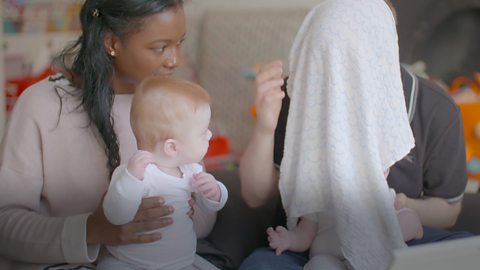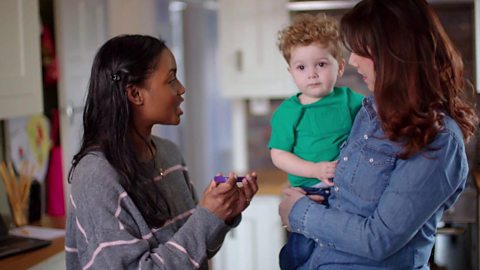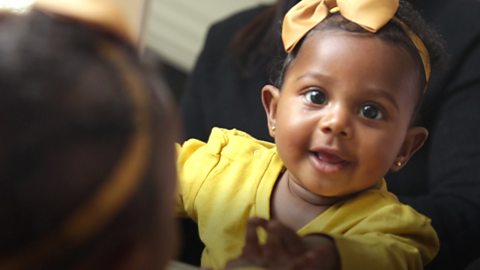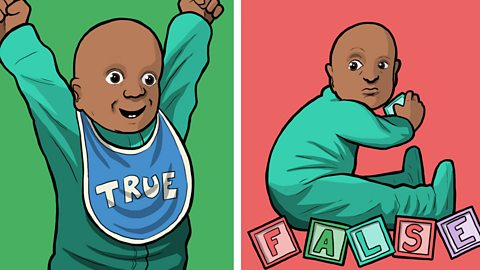A simple game of peek a boo can be an important part of your baby's development.
It's a game that you've known how to play since you were a child, but did you know that there are countless benefits to spending five or 10 minutes everyday playing with you baby?
In the short video below, baby development expert Dr Michelle Peter explains the science behind playing peekaboo and gives some hints for getting the most out of this time.
Michelle:
Oh, there she is!
Peekaboo is a really interesting way of teaching your baby about a concept called 'object permanence'.
This is the understanding that when an object or a person disappears from sight, that they're not gone forever.
Shall we have a go? Where's Yarra?
Oh, there she is!
Peekaboo!
Dad:
Shall we both disappear?
Michelle:
Where's Daddy?
Dad:
I'm back!
Michelle:
Boo! There they are!
Their reactions can help you to monitor their physical development, but it can also give you insight into other aspects of the development, like their communication skills.
Dad:
If they don't react to the stimulus of disappearing and coming back, does that mean there's something wrong?
Michelle:
Not necessarily. Just like you and I, babies have different personalities.
So the more opportunity that you are taking that time to speak with them, the more you're giving them to learn from you.
You're the most important people in their world right now. They're learning everything about their world from you.
What is object permanence?
Object permanence describes a child's understanding that when an object or a person disappears from sight they're not gone forever.
When an object is hidden from sight, babies under a certain age often become upset that the item has vanished. This is because they are too young to understand that the object continues to exist even though it cannot be seen.
Playing peekaboo can help a baby develop this understand and might also help with separation anxiety when they reach 6 months.
How does peekaboo help with language development?
From around three months old, babies begin to recognise the repeated words and actions of simple games and can start to predict and anticipate what will happen next.
Next time you play peekaboo, try leaving out the "boo" and see how they react. Do they seem confused? Are they trying to say the word in its place?
By changing this small thing, your baby is learning about the back and forth of conversation. Your baby might be confused that you didn't finish your part and might try and make sounds for you the respond to.
Find out more about the science of peekaboo in action.
What age can you start playing peekaboo?
You can start playing peekaboo from the moment your baby is born but you might want to adapt the game as your child gets older. Check out some of the links below for inspiration on how you can adapt your game of peekaboo for babies of different ages:
- Start by just playing with peekaboo at the newborn stage and see how your baby reacts
- You could also try playing hide and seek with a toy, as this will help your baby understand similar concepts
- As your baby gets older, around 12 months, you might want to see if they will start copying you and hiding their own face
- When your child is around three or four years old, you can help their memory develop further by playing simple memory games or setting up an indoor treasure hunt

Image caption, Peekaboo is great for helping develop your baby's sense of 'object permanence'. This is the understanding that you don't just disappear from the world when they can no longer see you.
1 of 4






